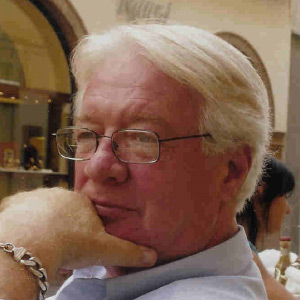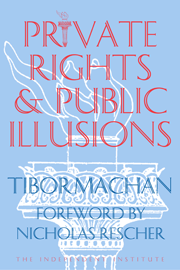Writing in a recent issue of The New Republic, Bruce Steinke, who has worked in the magazine’s production department for more than a decade, tells the heartbreaking story of his son, Dylan, who has had a chromosome defect since his birth. It has made the boy’s life quite different from what his parents expected, although by now they have made peace with how things turned out.
Yet, Steinke also shows something important about how people think when they are struck with disaster, misfortune, catastrophe. Although, as he says, he has never considered himself political, he is now an activist seeking help for those struck down like his son. Many others like Steinke, who come face to face with a calamity, become advocates of public policies aimed at helping out those struck down by what they or their loved ones experienced.
Christopher Reeve comes to mind, as does Itzhak Perlman, George Will and others. They all consider it not just justified but outright obligatory for them to proselytize on behalf of public finding of efforts to find remedies for the malady and rel jef for those struck down by it.
Robert Higgs argued, in his Crisis and Leviathan (Oxford University Press), that governments gain greater and greater power when a crisis occurs and people panic and abandon their concern for the general principles that are best suited for a just society. Wars, hurricanes, famine, AIDS, etc., tend to function this way. They resemble those occasions when it seems permissible to strike, shake or grab others against their will, without their permission: when they become hysterical or spin out of control. Shaking them, slapping them, yelling at them or grabbing them all seem temporarily OK, even though they aren’t hurting anyone else.
The trouble is, of course, that when governmental coercion is unwisely introduced as the way to solve problems, it is nearly impossible to backtrack, to abandon the failed or costly effort.
Coercion causes more problems than it solves, that much we can tell by now from human history. Force in human relationships is never a good solution.
Yet such force is very inviting when all else seems to fail and the stakes are enormous, such as making the life of a seriously impaired loved one somewhat easier to cope with.
Now an important thing about this is that none of those who champion government help in such cases want simply to grab and wield power. They are not, as some cynics would hold, power hungry, eager to lord it over others. No. They want power for some of the most laudable reasons: to cure diseases, remedy damage, rescue innocent causalities, relieve pain and the like. In desperation, though, they will use this power to violate the rights of innocent people. No one can argued with the importance of their objectives. It is only possible to argue with they are more important than what is lost in the process, human liberty. Often freedom’s champions think that moral reasons need play no role in their cause. They tell us that if we hold out for a moral defense of individual rights, we are doomed since no agreement can be reached on moral issues and practical reasons are more convincing than moral ones.
Well, to begin with, freedom doesn’t work for every decent purpose, except in the long run (which for many folks is too late).
Only if it is shown that sticking to principle is itself vital in human life, even in the face of very strong and appealing temptations to abandon that resolve, might folks like Steinke, Reeve, Perlman, et al., give up their firmly held, albeit false, belief that their cause justifies violating the rights of others, even those who may have "surplus" wealth with which to help those who are in need.
In the end what is crucial to appreciate, even for those who are struck with calamity, is that the right to individual liberty, including private property, is fundamental, a necessary condition for the pursuit of all worthwhile goals, including health and well being for those who are in dire straits. But this is not self-evident. It needs reiteration, sound arguments and an appreciation for why some people may not be ready to agree.








